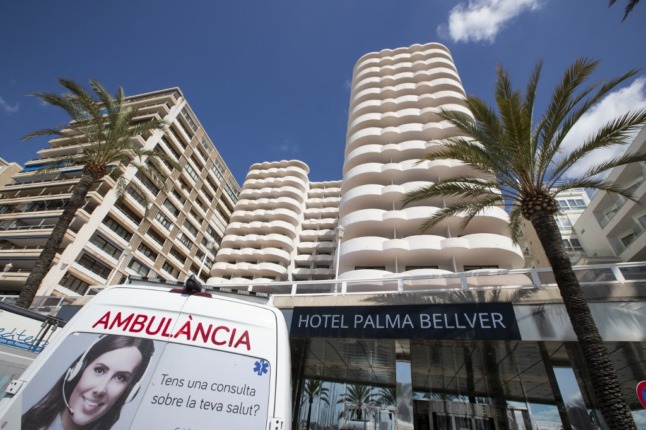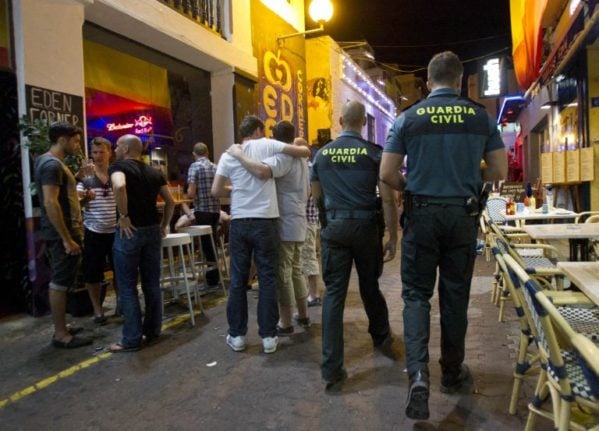The Balearics have long been a favourite holiday getaway for millions of people from across the world.
But a new law passed on the islands this week means no new hotels will be built for the next four years, and the government is trying to recalibrate the sector and make tourism more sustainable.
Balearic authorities have passed a law that will ban the creation of new hotels and other tourist accommodation on the islands until at least 2026 as part of a bid to engage a new model of tourism that values quality over quantity.
Speaking at a press conference this week, the government boss Francina Armengol explained that the law had been made by decree and comes into force from Friday. She did add, however, that amendments could yet come as it passes through the regional parliament.
With a financial injection of €60 million, the new legislation comes as part of a broader commitment to tourism sustainability, making the most of the resources the islands have, improving working conditions for those in the industry, the modernisation of pre-existing establishments, and the introduction of a new hotel classification system.
The bill also emphasises the tourism industry’s need for sustainability and energy transition. Minister for Energy Transition, Productive Sectors and Democratic Memory, Juan Pedro Yllanes, said in a statement this week that “success will be stopping unlimited consumption of resources. Tourism must be sustainable.”
No new hotels
The freeze on new hotels, but also on any tourist ‘space’ including rental services like Airbnb, is part of an attempt to improve the quality of life of residents and the tourist experience of visitors, and will affect hotels and tourist rental establishments on all the islands.
Mallorca, Ibiza and Formentera’s tourism accommodation now totals more than 18,000 ‘rental units’, of which almost 8,500 are in Mallorca, 7,000 Ibiza, and more than 3,000 in Formentera. Menorca has a considerably lower number of tourism establishments.
Circular economy
Spanish media has reported that the Balearics want to become the first circular economy tourism destination in the world, and tourist establishments will, moving forward, be required to have a ‘Circularity Plan’ that incorporates energy, waste, water and food.
Non-compliant establishments can be fined up to €100,000 under the new rules, and must be able to demonstrate a circular evaluation of its carbon footprint and how it generates and recycles waste, and will be subject to regular evaluation and inspection.
Cracking down on drunkenness
Not only are the Balearics aiming for a new high quality, lower quantity sustainable tourism sector, but they’re also cracking down on public drunkenness and the phenomenon of ‘balconing’ – a Spanglish word used to describe drunken tourists – usually Brits – falling off balconies when on holiday, often when they’re drunk.
Indeed it is believed that the decree law passed all the way back in January 2020 is aimed particularly at British tourists, one of the largest tourist groups that visit the islands, but was missed because of the COVID-19 pandemic. As international travel restrictions are now being lifted, many Brits keen to get away are unaware of the new rules in place.
Alcohol consumption in all-inclusive hotels and resorts are now limited to a total of six alcoholic beverages: three at lunchtime and three at dinner.
The new rules also ban advertising that encourages alcohol overconsumption, such as free bars, happy hours and drinks deals, and alcohol cannot be sold in shops between 9:30 p.m. and 8:00 a.m.
Those tourists who manage to get around the rules and begin ‘balconing’ will be kicked out of their hotel and fined between €6,001 and €60,000.
Big fines for hotels that do not install elevating beds
The bill also includes measures to increase the protection of chambermaids’ wellbeing, as the decree states that from 2023 all establishments must change their infrastructure and install elevating beds. If they do not comply within a period of 6 years, they will be sanctioned with €500 for each bed not installed.
Minister for the Economic Model, Tourism and Work, Iago Negueruela said this week that the legislation seeks not only to improve the quality of product for the tourists, but also for workers in the sector : “A bed can be seen from the point of view of the client but also from the point of view of the person who has to do it,” he said.
By Conor Faulkner.



 Please whitelist us to continue reading.
Please whitelist us to continue reading.
Member comments